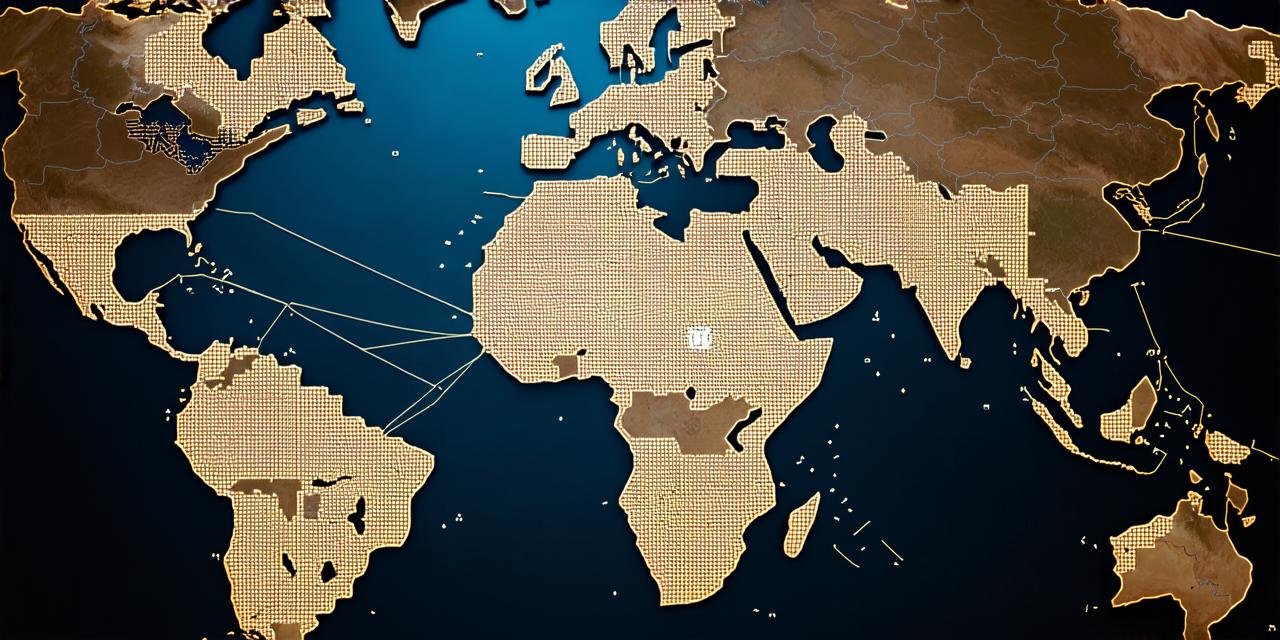Globalization refers to the process by which countries and businesses engage in economic, political, and cultural exchanges across national borders. This has led to an increase in cross-border outsourcing, where companies outsource certain tasks or processes to suppliers in other countries.
Benefits of Globalization on Outsourcing
One of the primary benefits of globalization on outsourcing is the ability to access a larger pool of talent. Companies can find skilled workers in countries where labor costs are lower, which allows them to reduce their overall expenses.
This can also lead to improved quality and efficiency, as suppliers may have different processes or technologies that can be more effective than what the company currently uses.
For example, a company based in the United States may outsource software development to a supplier in India, where labor costs are lower. By doing so, the company can access a larger pool of talent and improve its quality and efficiency. The company can also take advantage of the time difference between the two countries, allowing it to extend its working hours and increase productivity.
Challenges of Globalization on Outsourcing
Despite its many benefits, globalization also presents several challenges when it comes to outsourcing. One of the biggest challenges is the risk of cultural differences and language barriers.
Communication can be more difficult when working with suppliers in different countries, which can lead to misunderstandings and delays. This can also make it harder to establish trust and build long-term relationships with suppliers.

Another challenge of globalization on outsourcing is the risk of intellectual property theft. When companies outsource tasks to suppliers in other countries, they may be vulnerable to theft of their proprietary information. This can include trade secrets, patents, and copyrights. Companies must take steps to protect their intellectual property when working with suppliers abroad.
Case Studies of Globalization on Outsourcing
To illustrate the impact of globalization on outsourcing, let’s look at a few real-life examples. One well-known example is Dell, which has been outsourcing manufacturing and assembly processes to suppliers in countries like China and Mexico for many years. By doing so, Dell has been able to reduce its costs and improve its efficiency. However, Dell has also faced challenges related to cultural differences and language barriers, as well as the risk of intellectual property theft.
Another example is Amazon, which has been outsourcing software development and other technical tasks to suppliers in countries like India and Brazil. By doing so, Amazon has been able to access a larger pool of talent and improve its quality and efficiency. However, Amazon has also faced challenges related to cultural differences and language barriers, as well as the risk of intellectual property theft.
Personal Experience with Globalization on Outsourcing
I have worked with several clients who have outsourced tasks to suppliers in other countries. In one case, a client was a software development company that wanted to outsource its software development tasks to a supplier in India. The client faced challenges related to cultural differences and language barriers, as well as the risk of intellectual property theft.
To address these challenges, we recommended that the client sign non-disclosure agreements with the supplier and provide training on intellectual property protection to the supplier’s employees. We also recommended using secure communication channels and establishing regular communication between the client and the supplier to ensure smooth collaboration and avoid misunderstandings.
In another case, a client was a manufacturing company that wanted to outsource its manufacturing processes to a supplier in China. The client faced challenges related to cultural differences and language barriers, as well as the risk of counterfeit goods and quality issues.
To address these challenges, we recommended that the client conduct thorough due diligence on the supplier’s capabilities, certifications, and compliance with industry standards. We also recommended using secure communication channels and establishing regular communication between the client and the supplier to ensure smooth collaboration and avoid misunderstandings. Additionally, we recommended implementing quality control measures to ensure that the supplier is meeting the client’s expectations and standards.
Conclusion
Globalization has had a significant impact on outsourcing, presenting both benefits and challenges for companies. By understanding the impact of globalization on outsourcing and addressing its challenges, companies can take advantage of its many benefits and build successful outsourcing relationships with suppliers in other countries. Companies must be aware of the risks associated with outsourcing, such as cultural differences and intellectual property theft, and take steps to mitigate these risks through clear communication channels, non-disclosure agreements, and training on intellectual property protection. By doing so, companies can access a larger pool of talent and improve their efficiency while protecting their proprietary information.
